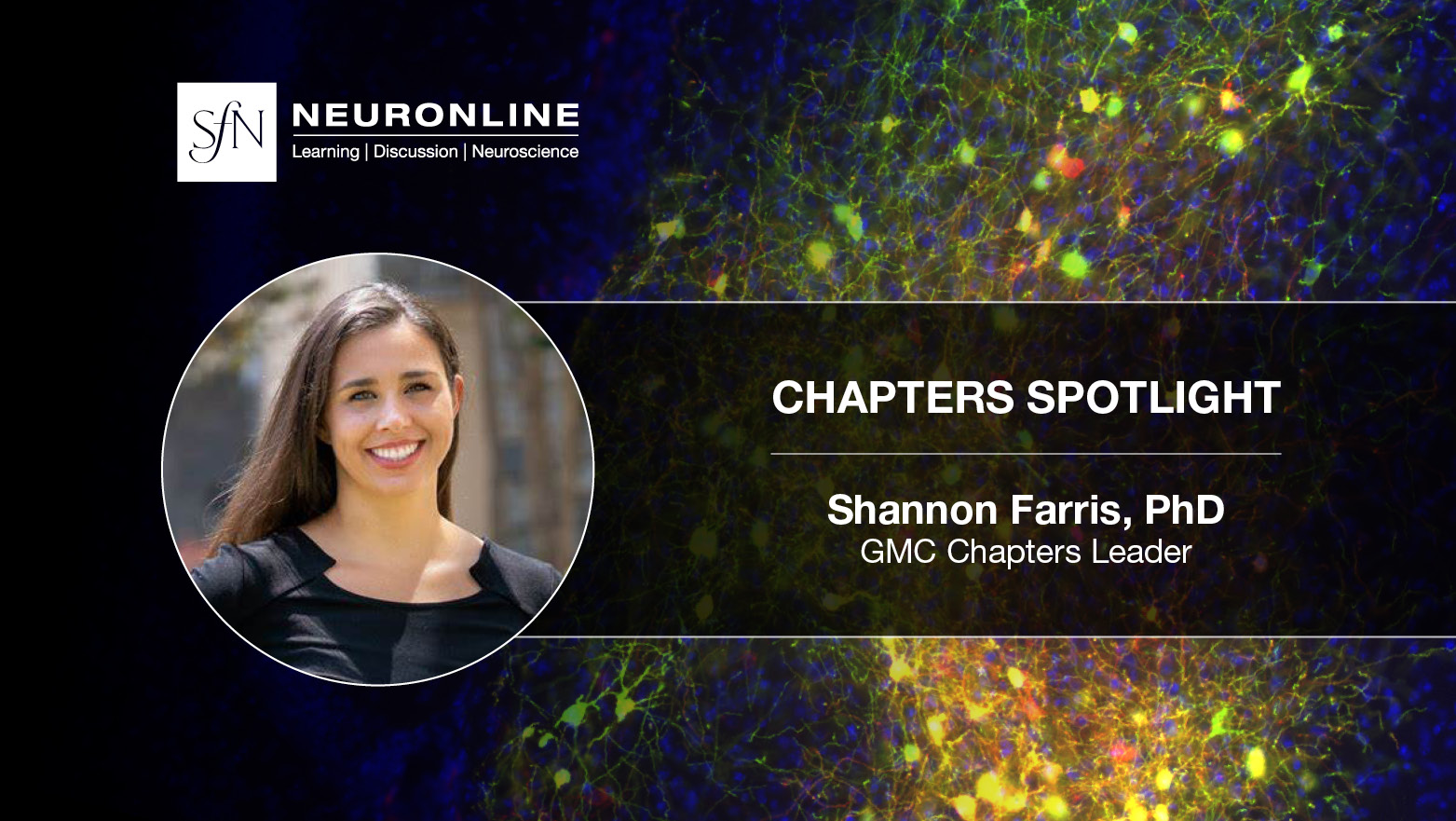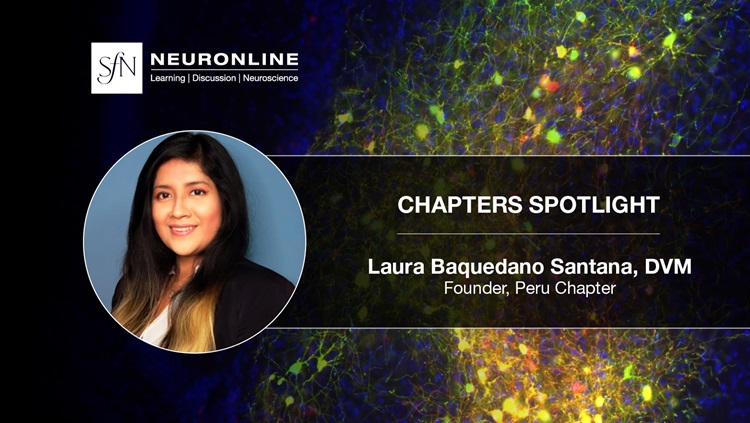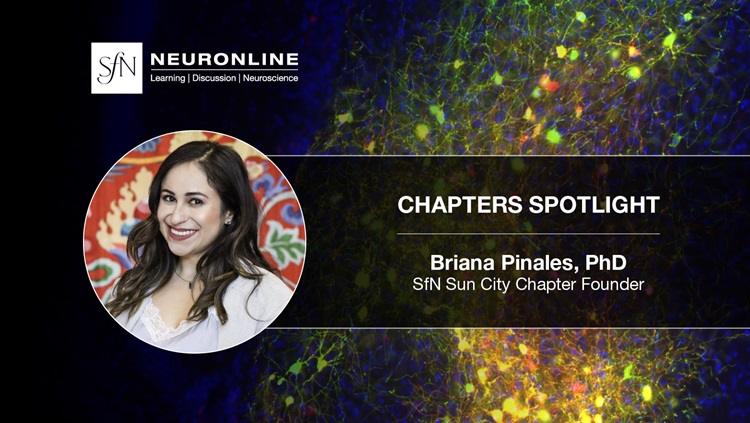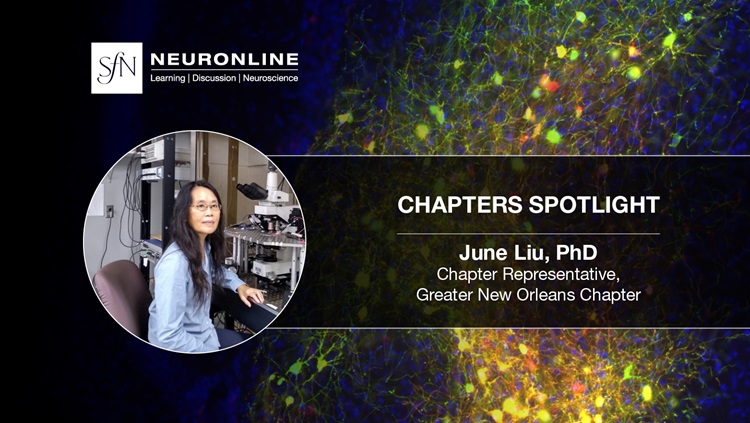How This GMC Chapters Leader Supports the Global Neuroscience Community
- Featured in:
- SfN Chapter Resources

In this Chapters Spotlight, learn more about SfN’s Global Membership Committee (GMC) Chapters Leader Shannon Farris, PhD. Farris is the chair of the Chapters Subcommittee, the group that leads initiatives for chapter engagement within SfN. She has led the group for the past three years. She is also a member of the GMC, where she shares chapter-related news and recommends chapter activation or reactivation petitions for approval. Learn more about SfN’s local chapters here.
What drew you to volunteer for the Chapters Subcommittee of the GMC?
As a postdoc and an SfN Early Career Policy Ambassador, I reactivated the North Carolina Triangle SfN Chapter, and I experienced first-hand the value of local SfN chapters. Chapters are critical to fulfilling the SfN mission by bringing neuroscientists together to share their research with each other, their communities, and their legislators. I also experienced the difficulties chapters face in bringing local programming to their communities. As a member and chair of the chapters subcommittee, I have strived to ease the administrative burdens we place on our local chapter volunteers and find new and creative ways to support our chapters as we emerge from Covid-19 budget cuts.
What value do you find in participating in local chapters?
Aside from the obvious benefit of networking with neuroscientists at neighboring institutions and at different career levels, I value the opportunity to use SfN as a vehicle to forge relationships with local and state policymakers to offer expertise to their offices for science-related legislation. I also enjoy sponsoring community events and engaging with K-12 students to expose them to brains and show them what neuroscientists really look like.
What is your favorite task as a Chapters Subcommittee chair?
I have particularly enjoyed engaging with other chapter leaders across the globe. I greatly value our international colleagues’ perspectives on how SfN can better serve and support the global neuroscience community.








